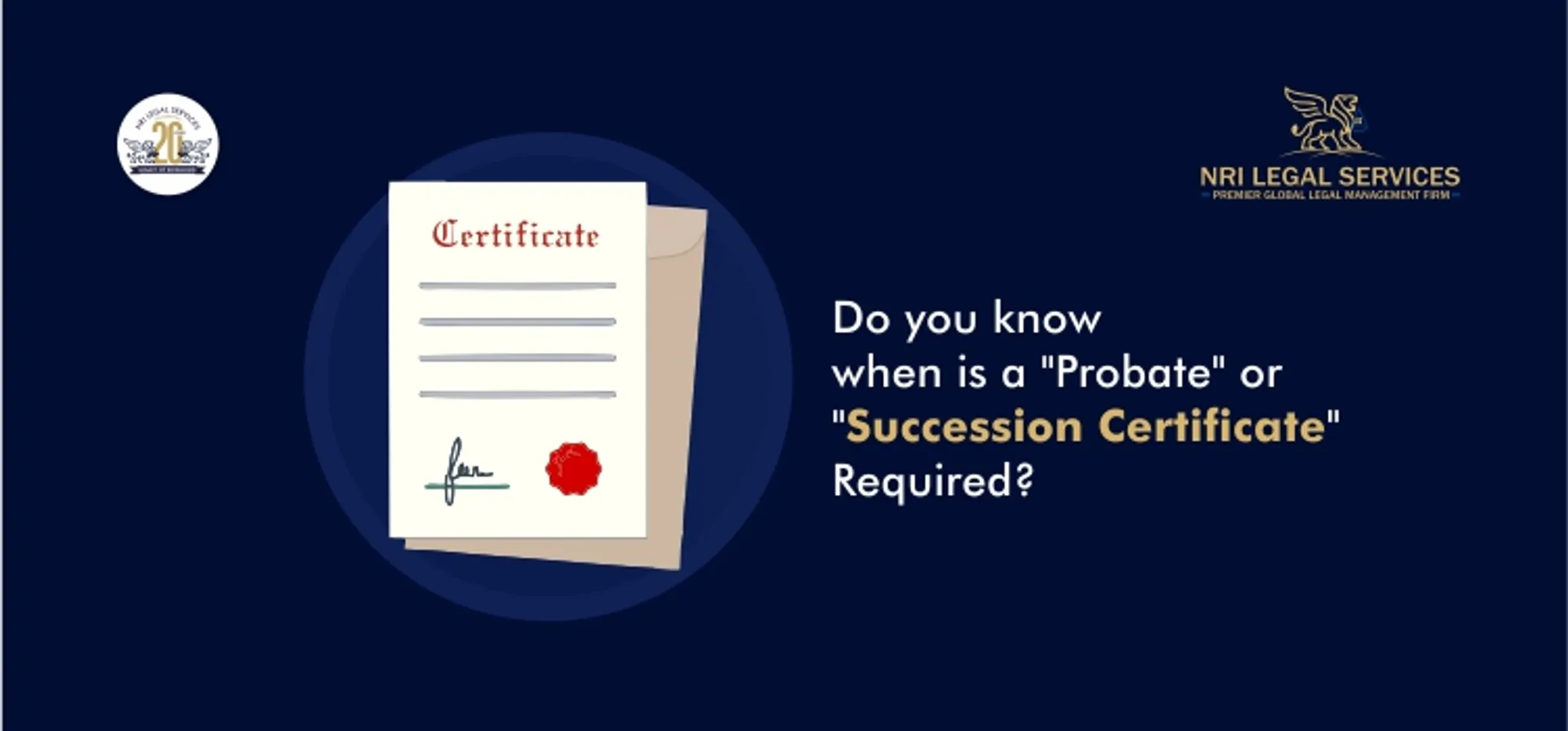Probate and Succession Certificate, both granted by the competent Courts, are of absolute necessity, especially in the scenario when a deceased person’s estate needs to be distributed by way of Will or by way of Natural Succession. Probate is granted when the deceased person has left a Will. However, the Succession Certificate is granted in both cases, with or without Will.
Requirement of Probate of Will:
Getting the Will Probated after the death of the testator should be the first step that has to be taken by the Executor of the Will as it holds much importance under many scenarios. Probate of the Will signifies the authenticity of the Will made by the testator during his lifetime. In other words, Probate is only the declaration passed by the Court of competent jurisdiction certifying that the Will of the deceased is genuine and valid. In the Will, an Executor is appointed responsible for Probating the Will and then distributing and managing the assets as per the testator’s wishes.
If a person is an NRI and makes a Will abroad bequeathing his movable assets in India favouring his legal heirs, the said Will has to be probated in the said country where the NRI lived before his death. Only after the Probation of his Will from the Probate Court, the said Will is applicable in India. The beneficiaries can claim the financial assets based on the Will made abroad. A Will that has not been probated abroad has no legal sanctity in India.
Recommended reading: How to apply for succession certificate in the court
Probate is legitimate evidence of delegate title. There are some cases where the testator had made more than one Wills, or one beneficiary does not admit the existence of Will and may challenge its authenticity. In such circumstances, the Executor of the Will is required to apply for Probate of Will to ascertain Will’s validity and vesting rights in favour of beneficiaries named in the Will.
Requirement of Succession Certificate:
The Petition for Grant of Succession Certificate has to be filed in both cases, with or without the Will. Under the circumstance when a person dies intestate, i.e., without making any Will, his legal representatives have to approach the Competent Court for claiming the financial assets left by the deceased. In simple words, legal heirs can establish a claim over financial assets like bank deposits, Fixed Deposits, Provident Funds, shares, loans, insurance policies or any other security after obtaining the Succession Certificate. The Succession Certificate acts as an assurance of title that helps recover debts due toward the person who is no more and accordingly shields the deceased moneylender from the financial loss.
The individual in favour of whom the Succession Certificate is granted can get interest or profits on the movable properties and also receives the right to deal with the same in any manner. The Succession Certificate also implies that its holder now has complete hold over the movable assets of the deceased.
Recommended reading: Difference between Succession Certificate and Letter of Administration
The Succession Certificate is the essential proof when a person doesn’t make a will, and he/she pass away. Through a succession certificate, the successors of that person can claim their right on the financial assets.
As far as the jurisdiction is concerned, the District Judge granted the Succession Certificate under whose jurisdiction the person who expired had ordinarily resided. In the absence of permanent residence of the deceased, the Succession Certificate is filed in the jurisdiction where any property belonging to the deceased may be found.
While applying for Succession Certificate in the Court, along with the petition, one has to furnish the complete particulars of the deceased person, particulars of all his legal heirs and then file the Original death Certificate of the person, the Probate Order (in case of Will made abroad) and Original Documents about financial assets. If any of the legal heirs are not interested in claiming his/her right over the properties, then an affidavit in this regard also needs to be filed in the Court.
Recommended reading: Succession certificate and legal heir certificate
In the Succession certificate, information regarding the person’s death, his surviving representatives who are entitled to claim the movable assets, list of securities, debt, and assets are mentioned. This connotes that the Certificate holder has acquired legitimate authority over the movable assets of the deceased.
The Succession certificate is valid and applicable throughout the country. The Court should duly stamp the Certificate for its use and applicability.

